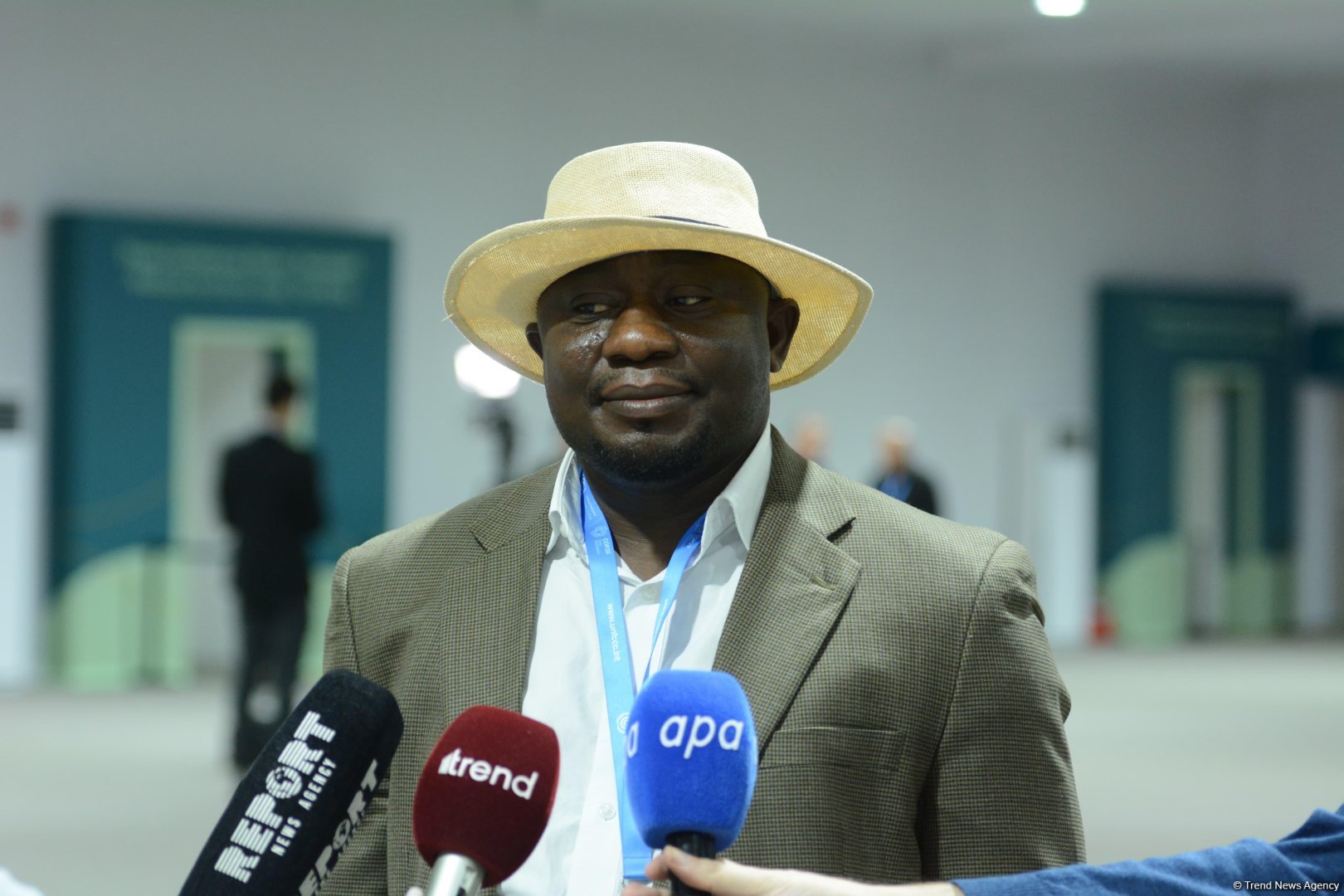BAKU, Azerbaijan, November 23. Developed countries, as the largest contributors to pollution, have a responsibility to play a leading role in climate financing, said Eric Kofi Afornorpe, a representative of Ghana’s delegation and participant in COP29 negotiations, on the sidelines of the conference, Trend reports.
“Securing adequate financing remains one of the key challenges at this conference. The lack of funding is a major barrier to implementing the Paris Agreement, which we are committed to achieving by 2030. Without proper financial support, meeting the goals of the Paris Agreement will be impossible. Developed nations, as the primary polluters, must step up and contribute significantly. Mechanisms like the Green Climate Fund, the Adaptation Fund, and the Loss and Damage Fund were created for this purpose, but they remain severely underfunded,” he said.
Still, the Ghanaian negotiator expressed hope that this conference could establish a long-term, measurable financing goal.
“It’s estimated that implementing the Paris Agreement in Africa will require around $1.1 trillion, a figure that could rise to $1.8 trillion by 2030. Even the proposed $250 billion is just a drop in the ocean. It’s nowhere near enough.
Western nations have repeatedly pointed to economic challenges—such as the impact of COVID-19 and the ongoing global financial crisis—as reasons for their inability to provide adequate funding. While these concerns are understandable, does that mean we should abandon the Paris Agreement altogether? If financing isn’t possible, can we really talk about fulfilling our climate commitments? This raises serious questions about their priorities,” he emphasized.







